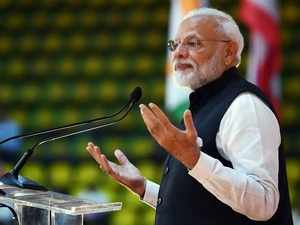 Agencies
AgenciesFrom ‘Gandhiji’s Talisman’ — ‘Is the step to be taken good for the poor?’ — cited by Prime Minister Narendra Modi, to the need for a ‘level playing field’ for Indian business, cited by various officials and business and political leaders, every single argument put forward in defence of India’s decision to stay away from the Regional Comprehensive Economic Partnership (RCEP) agreement has been around for a long time. Why did GoI then opt to walk away from the deal at the eleventh hour at a leaders’ summit in Bangkok on Tuesday rather than allow the minister for commerce and industry to take that decision at a ministerial level?
In choosing to negotiate till the end and at the level of heads of State and government, Modi has chosen to politicise what could easily have been defined as a purely economic decision. It should, therefore, not surprise anyone if commentators around the world view India’s decision not simply as a trade and economic policy decision but in wider geopolitical terms. The RCEP decision could now be interpreted as a failure of India’s ‘Act East Policy’ with questions raised about the lack of an economic dimension to the Indo-Pacific strategy.
In opting to define the RCEP decision in political and geopolitical terms, GoI has willy-nilly allowed its critics to suggest that Modi’s informal summit meeting with China’s President Xi Jinping at Mamallapuram last month may have failed in securing China’s support for India’s membership of RCEP on more favourable terms. Such an inference will have implications for how India-China relations are viewed.
This, however, is not the first time that India has chosen to view its trade relations with East and Southeast Asia in geopolitical, rather than purely in economic, terms. In 2006, Congress president Sonia Gandhi had written a letter to Prime Minister Manmohan Singh not to proceed in negotiating a free trade agreement (FTA) with the Association of Southeast Asian Nations (Asean).
Defending his decision to go ahead with the India-Asean FTA, which lies at the heart of the proposed RCEP, Singh wrote to Gandhi, “Our approach to regional trade agreements in general and FTAs in particular has been evolved after careful consideration of our geopolitical as well as economic interests.”
While defending trade liberalisation in general, and drawing attention to the benefits of increased external trade for the economy as a whole, Singh made a geopolitical case for the India-ASEAN FTA. Modi has turned that argument on its head by suggesting that greater trade liberalisation of the sort demanded by RCEP would not serve India’s economic interests, and that the geopolitical cost of walking away from such a deal was worth paying.
The argument that FTAs with Asian economies, including Asean, Japan and South Korea, have only contributed to higher trade deficits is as much a critique of the FTAs as it is of domestic policies that have not yet made India globally competitive. It is, therefore, also an admission of the fact that the so-called ‘National Manufacturing Strategy’ of the Manmohan Singh administration, and its subsequent avatar, the ‘Make in India’ programme of the Modi administration, have failed to deliver.
The RCEP decision also underscores the seriousness of the extant economic situation. For far too long have the economic czars of this government denied the seriousness of the slowdown. Rather than deny the reality of economic problems fearing a negative political fallout, GoI and the political leadership could have used economic evidence to make a case for bolder action, promising more jobs.
Rather than play the RCEP decision as a bold move and an act of great leadership — ‘Modi hai to mumkin hai’ (Modi makes it possible), said commerce and industries minister Piyush Goyal — it would be wiser to use it as an opportunity to hold a mirror to the nation and unveil a bold strategy of economic reconstruction and modernisation that would help make the economy more globally competitive.
Every student knows that opting out of a global competition is not an act of courage. It is an admission of incompetence. But every student also knows that hard work and ingenuity can liberate and help win.
In 1991, Prime Minister P V Narasimha Rao used an economic crisis to liberate India from old ways of thinking. Rather than deny India’s inadequacies, he boldly drew attention to them and urged his country to change course. Modi can learn much from that experience. Rather than pretend that India is well on its way to become a $5 trillion economy, he should call the nation to arms to work towards realising that goal.
The world does not take India’s pretence seriously. It is performance that counts.
(The writer is distinguished fellow, Institute for Defence Studies & Analyses, New Delhi)
Download The Economic Times News App to get Daily Market Updates & Live Business News.
Subscribe to The Economic Times Prime and read the ET ePaper online.
Read More News on
Download The Economic Times News App to get Daily Market Updates & Live Business News.
Subscribe to The Economic Times Prime and read the ET ePaper online.










 Get Unlimited Access to The Economic Times
Get Unlimited Access to The Economic Times
